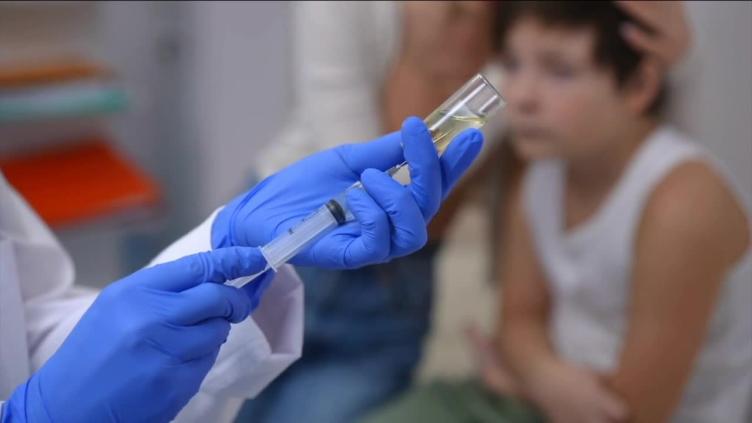Federal judge blocks Florida’s ban on gender transition therapies for minors, DeSantis vows appeal

Major portions of Florida’s ban on gender transition care for minors and limits for adults are now blocked in the Sunshine State. A federal judge in Florida’s Northern District ruled Tuesday that much of the law was unconstitutional. Judge Robert Hinkle’s decision comes after months of review following a three-day trial in December of last year.
Federal judge strikes down Florida's ban on transgender health care for children
Ana Goñi-Lessan, Tallahassee Democrat
Tue, June 11, 2024
A federal judge on Tuesday blocked Florida's ban on health care for transgender children and restrictions for transgender adults.
"Florida has adopted a statute and rules that ban gender-affirming care for minors even when medically appropriate. The ban is unconstitutional," Tallahassee-based Senior U.S. District Court Judge Robert Hinkle wrote in his order.
Hinkle named the following measures in state law (SB 254) and subsequent rules unconstitutional: prohibiting gender-affirming care, prohibiting licensed medical personnel from providing gender-affirming care and requiring unnecessary medical tests, appointments and forms, among others.
The order does not address surgeries; the plaintiffs did not challenge the ban on surgery for minors, according to the ruling.

Department of Health Surgeon General Dr. Joseph A. Ladapo leads a discussion with doctors and researchers while talking about the Cancer Connect Collaborative, an initiative spearheaded by Casey DeSantis to improve cancer research and treatment Wednesday, Feb. 14, 2024.
The plaintiffs, four transgender adults and seven parents of transgender minors, prevailed against Florida Surgeon General Joseph Ladapo, the Florida Board of Medicine, the Florida Board of Osteopathic Medicine and other state leaders, according to the ruling.
The ruling by Hinkle, an appointee of President Bill Clinton, comes as a blow to Gov. Ron DeSantis' anti-woke agenda, which has included anti-LGBTQ legislation in health care, saying gender-affirming care is experimental and lacks evidence.
"The defendants say gender dysphoria is difficult to diagnose accurately — that gender identity can be fluid, that there is no objective test to confirm gender identity or gender dysphoria, and that patients treated with GnRH agonists or cross-sex hormones have sometimes come to regret it. But the defendants ignore facts that do not support their narrative," Hinkle wrote.
Judge: Governor, lawmakers 'overtly biased against transgenders'
The governor's comments, and those of some legislators, during the legislative process behind the law were quoted in Hinkle's ruling and cited as being "overtly biased against transgenders."

Senior U.S. District Judge Robert Hinkle of Tallahassee.
"This is a politically fraught area. There has long been, and still is, substantial bigotry directed at transgender individuals. Common experience confirms this, as do some of the comments of legislators recounted above. And even when not based on bigotry, there are those who incorrectly but sincerely believe that gender identity is not real but instead just a choice. This is, as noted above, the elephant in the room," Hinkle wrote.
In a statement, the governor's press secretary said the state will appeal.
"Through their elected representatives, the people of Florida acted to protect children in this state, and the court was wrong to override their wishes," Jeremy Redfern said in a text message to the USA TODAY Network-Florida.
"We disagree with the Court's erroneous rulings on the law, on the facts, and on the science. As we've seen here in Florida, the United Kingdom, and across Europe, there is no quality evidence to support the chemical and physical mutilation of children. These procedures do permanent, life-altering damage to children, and history will look back on this fad in horror."
He went on, "Under Gov. Ron DeSantis, Florida will continue to fight to ensure children are not chemically or physically mutilated in the name of radical, New Age 'gender ideology.' "
Same judge had issued preliminary injunction last year
In the ruling, Hinkle called out the state for continuously referring to Europe as supportive evidence for the anti-trans health care legislation.
"The assertion is false. And no matter how many times the defendants say it, it will still be false. No country in Europe — or so far as shown by this record, anywhere in the world — entirely bans these treatments," Hinkle wrote, adding that the treatments are available in appropriate circumstances in all the countries cited by the defendants, including Finland, Sweden, Norway, Great Britain, France, Australia and New Zealand.
Last year, almost to the day, Hinkle issued a preliminary injunction for the parents of the transgender children to administer drugs that can delay the onset or continuation of puberty, and cross-sex hormones — testosterone for transgender males, and estrogen for transgender females — which promote the development of characteristics that align with a patient's gender identity.
That decision paused the prohibition on puberty blockers and hormone therapy for three plaintiffs in the case: Jane Doe on behalf of Susan Doe, Gloria Goe on behalf of Gavin Goe, and Linda Loe on behalf of Lisa Loe. The plaintiffs were represented by the Southern Legal Counsel, GLBTQ Legal Advocates & Defenders, the Human Rights Campaign Foundation, the National Center for Lesbian Rights and Lowenstein Sandler LLP.
“This ruling means I won’t have to watch my daughter needlessly suffer because I can’t get her the care she needs," said Jane Doe, on behalf of herself and her daughter Susan Doe.
"Seeing Susan’s fear about this ban has been one of the hardest experiences we’ve endured as parents. All we’ve wanted is to take that fear away and help her continue to be the happy, confident child she is now,” she added.
Ron DeSantis’s Signature Law Gets Brutally Shut Down in Court
Talia Jane
Tue, June 11, 2024

Federal Judge Robert Hinkle ruled Tuesday that Florida’s ban on gender-affirming care for trans children is unconstitutional—taking down one of Governor Ron DeSantis’s signature “anti-woke” laws, which the judge described as “divorced from reality.”
In his ruling, Hinkle found that a “significant number of legislators” were motivated by animus to enact the trans health care ban. In legalese, a motivation of animus is an illegitimate basis to pursue legislation. Hinkle’s ruling provided numerous instances of legislators acting in prejudice against trans people, saying lawmakers “single-mindedly pursued the predetermined outcome sought by the Governor and Surgeon General” to ban gender-affirming care.
“Had there been no animus,” Hinkle wrote in his ruling, “gender-affirming care probably would not have come before the Legislature at all.”
Hinkle’s ruling also nuked every single part of the state’s requirements to severely restrict access to gender-affirming care—including requiring annual hand X-rays, in-person consent forms, restrictions on who can provide gender-affirming care and therapy, as well as excessive appointments and lab tests intended to make access to gender-affirming care cost-prohibitive to discourage people from pursuing care.
“If ever a pot called a kettle black, it is here. The statute and the rules were an exercise in politics, not good medicine,” Hinkle wrote.
“Where there is bigotry, there are usually—one hopes, always—opponents of bigotry,” Hinkle added, noting that medical professionals who treat people with gender dysphoria are frequently advocates for gender-affirming health care.
In Hinkle’s ruling, as with the preceding injunction leading to Tuesday’s ruling, Hinkle asserted “gender identity is real” and noted during arguments that even the defense—representing Florida’s surgeon general and Board of Medicine—acknowledged it as such. Hinkle also noted that the defense, which sought to uphold the trans health care ban, “explicitly admitted that prohibiting or impeding individuals from pursuing their transgender identities is not a legitimate state interest.”
Hinkle’s ruling further assessed that “gender-affirming care causes no harm to others—no harm to individuals who do not receive the care. Those who are not involved are not involved.” The court decision nukes any potential claim that access to gender-affirming care is somehow harmful to public health, a favored talking point of transphobes who simply can’t leave other people alone.
Federal judge strikes down Florida ban on medical treatments for transgender kids
Romy Ellenbogen
Tue, June 11, 2024

Florida’s restrictions on medical care for transgender children are unconstitutional, a federal judge ruled Tuesday as he struck down a signature priority of Gov. Ron DeSantis.
U.S. District Judge Robert Hinkle’s decision invalidates much of a 2023 law and rules approved by state boards prohibiting children from accessing medical treatments for gender dysphoria, such as puberty blockers and hormones.
“Florida has adopted a statute and rules that ban gender-affirming care for minors even when medically appropriate,” Hinkle wrote in his 105-page order. “The ban is unconstitutional.”
Attorneys that represented the transgender plaintiffs argued that the law signed by DeSantis was an act of discrimination and “animus” against transgender people. The state said it was targeting the treatments, not transgender people themselves.
In his ruling, Hinkle, who was appointed to the bench by former President Bill Clinton, said that it was “clear that anti-transgender animus” motivated bill sponsors and some legislators who approved the law.
“Transgender opponents are of course free to hold their beliefs,” Hinkle wrote. “But they are not free to discriminate against transgender individuals just for being transgender. In time, discrimination against transgender individuals will diminish, just as racism and misogyny have diminished. To paraphrase a civil-rights advocate from an earlier time, the arc of the moral universe is long, but it bends toward justice.”
Hinkle pointed to comments from DeSantis and House representatives about young children being castrated or sterilized because of medical treatments for gender dysphoria. Hinkle said that the state admitted during the trial that there was no factual basis for those remarks, and that the record showed no evidence any Florida child had been “castrated or mutilated.”
“Perhaps all this talk about castration and mutilation is just political hyperbole,” Hinkle wrote. “But it casts at least some doubt on the assertion that these decisionmakers’ motivation was sound regulation of medical care in the best interest of transgender patients rather than outright disapproval of transgender identity.”
Along with striking down the rules banning kids with gender dysphoria from accessing medical treatment, Hinkle also struck down rules that required transgender adults to only get medical treatment from physicians, instead of from other kinds of health providers.
Hinkle last year also struck down Florida’s ban on Medicaid covering treatments for gender dysphoria. The state is appealing that ruling, and opponents have argued that the state has been defying Hinkle’s order and still denying Medicaid coverage.
DeSantis’ press secretary, Jeremy Redfern, said that the state would appeal Hinkle’s new ruling, as well.
“Through their elected representatives, the people of Florida acted to protect children in this state, and the Court was wrong to override their wishes,” Redfern said in an emailed statement. “We disagree with the Court’s erroneous rulings on the law, on the facts, and on the science. As we’ve seen here in Florida, the United Kingdom, and across Europe, there is no quality evidence to support the chemical and physical mutilation of children. These procedures do permanent, life-altering damage to children, and history will look back on this fad in horror.”
Major medical organizations like the American Academy of Pediatrics support children using treatments like puberty blockers for gender dysphoria. Hinkle said in his ruling that “not a single reputable medical association” has flatly opposed using puberty blockers and hormone therapy in appropriate circumstances.
If the state truly believed that gender dysphoria was being improperly treated in Florida, “despite the absence of complaints and despite the state’s inability, even now, to find a single adversely affected Florida patient,” they could have restricted or regulated care without banning it, Hinkle wrote in his order.
Simone Chriss, an attorney on the case and the director of the transgender rights initiative at the Southern Legal Counsel, said that Hinkle’s ruling “restores some balance in terms of, like, respect and dignity and decency in a state that has never been more in need of those things than right now.”
Chriss said that the ruling returns Florida to where it was just a few years ago, where decisions about transgender medical care are in the hands of patients, their families and their doctors.
The U.S. 11th Circuit Court of Appeals allowed a similar Alabama ban on medical treatment for transgender kids to take effect. But Chriss said the Florida case is different because the case out of Alabama didn’t argue that the laws were based on anti-transgender bias.
Jane Doe, one of the anonymous plaintiffs representing her transgender daughter, Susan Doe, said in a statement that the ruling means she won’t need to watch her daughter needlessly suffer.
“Seeing Susan’s fear about this ban has been one of the hardest experiences we’ve endured as parents,” Doe said in a statement. “All we’ve wanted is to take that fear away and help her continue to be the happy, confident child she is now.”
Federal judge strikes down Florida’s gender-affirming care restrictions
Tue, June 11, 2024

June 11 (UPI) -- Florida's ban on gender-affirming care for adults is discriminatory and has no legitimate state interest, a federal judge ruled Tuesday.
U.S. District Court for Northern Florida Judge Robert Hinkle ruled a 2023 Florida law is unconstitutional and violates the equal protection rights of transgender people.
"Florida can regulate as needed but cannot flatly deny transgender individuals safe and effective medical treatment," Hinkle said in his decision.
Hinkle said the state allows the use of similar "treatment with medications routinely provided to others with the state's full approval so long as the purpose is not to support the patient's transgender identity."
Florida's Republican leaders intend to appeal the ruling.
"We disagree with the court's erroneous rulings on the law, on the facts and on the science, said Jeremy Redfern, spokesman for Florida Gov. Ron DeSantis, said in a prepared statement.
Hinkle said the law and relevant rules for respective boards of medicine are based on opposition to transgender people.
Parents of transgender children and others in May 2023 filed a lawsuit in federal court seeking to overturn the law.
Hinkle said many American medical institutions and medical professionals accept the standards of care for transgender people and those diagnosed with gender dysphoria.
"I'm so relieved the court saw there is no medical basis for this law," Lucien Hamel, a transgender man who testified before the court, told Axios.
The law "was passed just to target transgender people like me and try to push us out of Florida," Hamel said.
Judge Strikes Down Florida Gender-Affirming Care Restrictions for Minors and Adults
Orion Rummler, the 19th
Tue, June 11, 2024
2

Daniel Knighton/Getty Images
This article originally appeared at The 19th.
Florida can no longer enforce its ban against transgender youth receiving gender-affirming care, or its restrictions against adults accessing gender-affirming care, after a federal district court ruling on Tuesday found those rules to be unconstitutional and fueled by animus against trans people. The ruling is effective immediately.
Although federal courts have blocked many state anti-LGBTQ+ laws, this ruling carries extra significance because Florida was the first state to push for gender-affirming care restrictions for transgender adults. The ruling is also unique because it blocks restrictions enacted through multiple channels: through laws passed in the statehouse as well as restrictions passed through the state’s medical boards.
U.S. District Judge Robert Hinkle’s order is also significant for its admonishment of the state for trying to regulate gender-affirming care based on “anti-transgender animus” instead of medical standards. Florida “cannot flatly deny transgender individuals safe and effective medical treatment — treatment with medications routinely provided to others with the state’s full approval so long as the purpose is not to support the patient’s transgender identity,” Hinkle wrote.
The Florida Surgeon General and the Florida boards of medicine have admitted that impeding transgender people from pursuing their identities is not a legitimate state interest, he wrote — but state legislators and others involved in the state’s gender-affirming care restrictions have still pursued this goal.
“Gender identity is real. Those whose gender identity does not match their natal sex often suffer gender dysphoria. The widely accepted standard of care calls for appropriate evaluation and treatment,” Hinkle wrote, noting that for minors, such care begins with mental health therapy and is followed, when appropriate, with hormone replacement therapy. “Florida has adopted a statute and rules that ban gender-affirming care for minors even when medically appropriate. The ban is unconstitutional.”
Hinkle also found that the state’s rule preventing nurse practitioners from providing gender-affirming care to adults is unconstitutional, as is requiring trans adults to jump through multiple hoops to access care — like signing consent forms that include false information and requiring follow-ups more frequently than medically necessary. These rules led to physicians and pharmacies turning away patients, preventing trans adults across the state from being able to access gender-affirming care.
The lawsuit, involving four transgender adults and seven parents of transgender minors representing broader plaintiff classes across the state, was brought against the Florida Surgeon General and the Florida boards of medicine in March 2023 by the Southern Legal Counsel, GLAD (GLBTQ Legal Advocates & Defenders), the National Center for Lesbian Rights (NCLR), the Human Rights Campaign Foundation and Lowenstein Sandler LLP.
Simone Chriss, an attorney with the Southern Legal Counsel in Florida and director of the organization’s transgender rights initiative, said in a statement that Hinkle’s order restores access to gender-affirming care for all transgender Floridians, since the lawsuit is a class action. Transgender adults can resume receiving care from their medical providers, including nurse practitioners, who had been prohibited from providing gender-affirming care under state law last year, she said.

Under Ron DeSantis, Florida Teacher Trainings Included Christian Nationalist Propaganda
A new report shows that training materials from a three-day course are full of Christian nationalist propaganda and anti-cancel culture rhetoric.
The lawsuit was initially filed to challenge the state’s board of medicine rules, and later amended to include a challenge to the gender-affirming care ban for trans minors that became law in May last year.
“I’m so relieved the court saw there is no medical basis for this law — it was passed just to target transgender people like me and try to push us out of Florida. This is my home. I’ve lived here my entire life,” said Lucien Hamel, a 27-year-old transgender man and one of the plaintiffs in the case, in a statement on Tuesday. “This is my son’s home. I can’t just uproot my family and move across the country. The state has no place interfering in people’s private medical decisions, and I’m relieved that I can once again get the healthcare that I need here in Florida.”
Get the best of what’s queer. Sign up for Them’s weekly newsletter here.
Originally Appeared on them.
More Stories from Them on Anti-Trans Legislation
For LGBTQ+ Rights, 2023 Was a Year of Fighting. Here’s What We Won
2023's Legislative Attacks on LGBTQ+ Rights, By the Numbers
5 Trans Students Explain How They’re Coping With Harassment, Protests, and More at School
2022 Was the Worst Year Ever for Anti-Trans Bills. How Did We Get Here?
Trans Adults Are the Next Target in the GOP’s War on Gender-Affirming Health Care
7 Trans Students on the Fear, Humiliation, and Loneliness of Life Under Bathroom Bans
What’s At Stake for LGBTQ+ Rights in 2024?
The Florida House Passed Three Extreme Anti-Trans Bills in a Single Day
Federal judge strikes Florida ban on gender-affirming care for children
Arek Sarkissian
Tue, June 11, 2024

TALLAHASSEE, Fla. — A federal judge has ruled that Florida’s new restrictions on gender-affirming treatment for children are unconstitutional, and that Gov. Ron DeSantis and other Republican lawmakers who supported them were not acting in the interest of public health.
By refusing to allow children to access treatments, Tallahassee-based district court Judge Robert L. Hinkle wrote in a ruling handed down Tuesday that DeSantis and Republicans who voted for the measure responded in a way that was similar to racism and misogyny.
“Enforcing this moral view is not, however, a legitimate state interest that can sustain this statute,” Hinkle — an appointee of President Bill Clinton — wrote, partly borrowing from arguments that lawyers for the plaintiffs gave during trial in December.
The ruling is a major win for a coalition of human rights groups that filed the federal lawsuit arguing the ban violated equal protection rights. "Today’s ruling affirms the principle that individuals should be able to make informed decisions about their own personal medical treatments without discrimination by the State,” Thomas Redburn, the lawyer representing the plaintiffs, said in a statement.
In response to Hinkle's ruling, Jeremy Redfern, a spokesperson for DeSantis, said the court was wrong to override the wishes of the people, which were conveyed through their elected representatives, and the state of Florida will appeal.
"We disagree with the Court’s erroneous rulings on the law, on the facts, and on the science," Redfern wrote in a text. "As we’ve seen here in Florida, the United Kingdom, and across Europe, there is no quality evidence to support the chemical and physical mutilation of children. These procedures do permanent, life-altering damage to children, and history will look back on this fad in horror."
Hinkle’s ruling also struck down restrictions for adults that were included in FL SB254 (23R), which DeSantis signed into law just over a year ago. They include requiring that only doctors, as opposed to other medical professionals, prescribe medicine for gender-affirming treatment and requiring annual x-rays without regard for circumstance.
The law was the result of a presentation that Florida Surgeon General Joseph A. Ladapo gave to the state boards of Medicine and Osteopathic medicine in 2022 that compelled the two boards to approve similar restrictions by making new rules. DeSantis then asked the Legislature to codify the board rules, saying that gender-affirming care includes castrating and sterilizing children, and mastectomies for girls. Hinkle noted in the ruling that surgeries on minors are extremely rare.
In the ruling, Hinkle wrote DeSantis’ comments about castration were false, and they proved that the governor’s intent of the measure was not to protect the public.
“Whether based on morals, religion, unmoored hatred, or anything else, prohibiting or impeding a person from conforming to the person’s gender identity rather than to the person’s natal sex is not a legitimate state interest,” Hinkle wrote.
The plaintiffs in the case were four transgender adults and seven parents who appeared on behalf of transgender children, and it was the second major lawsuit filed against efforts by Florida to block transgender care. Hinkle in June of last year issued a separate ruling striking down rules made by the state Agency for Health Care Administration that banned Medicaid from covering gender-affirming care.
Hinkle in June 2023 had also issued a preliminary injunction in the case he decided Tuesday that blocked part of the ban on transgender treatments for children for the plaintiffs. The state appealed that ruling and that decision is pending, although Hinkle's more expansive ruling could make that appeal moot.
Judge rules against Florida law banning transgender medical care for young people
Marin Scotten
SALON
Tue, June 11, 2024

Disney Employees Stage Walkout Over Florida's 'Don't Say Gay' Bill Octavio Jones/Getty Images
Parts of a Florida law banning gender-affirming healthcare for minors have been ruled unconstitutional by a federal judge.
U.S. District Judge Robert Hinkle’s wrote in an order released Tuesday that “gender identity is real” and invalidated much of a 2023 law that prohibited children from accessing puberty blockers and hormones.
“The state of Florida can regulate as needed but cannot flatly deny transgender individuals safe and effective medical treatment — treatment with medications routinely provided to others with the state’s full approval so long as the purpose is not to support the patient’s transgender identity,” Judge Hinkle wrote in his 105-page decision.
The measure was signed into law by Republican Gov. Ron DeSantis. It prevented minors from accessing transition-related medications and required that transition-seeking adult patients meet with a doctor in person and not via telemedicine. Hinkle struck down both rules.
The plaintiffs in the case were three families whose attorneys argued the law restricted their rights as parents to make medical decisions for their transgender children and that the law was enacted out of “discrimination and animus”, Forbes reported.
Hinkle agreed.
“Transgender opponents are of course free to hold their beliefs. But they are not free to discriminate against transgender individuals just for being transgender,” he wrote.
DeSantis has signed a number of other laws restricting trans rights, including bathroom usage bans and limits on which pronouns can be used in schools.
The Tampa Bay Times reported it’s likely the state will appeal Hinkle’s ruling.
Tue, June 11, 2024

Disney Employees Stage Walkout Over Florida's 'Don't Say Gay' Bill Octavio Jones/Getty Images
Parts of a Florida law banning gender-affirming healthcare for minors have been ruled unconstitutional by a federal judge.
U.S. District Judge Robert Hinkle’s wrote in an order released Tuesday that “gender identity is real” and invalidated much of a 2023 law that prohibited children from accessing puberty blockers and hormones.
“The state of Florida can regulate as needed but cannot flatly deny transgender individuals safe and effective medical treatment — treatment with medications routinely provided to others with the state’s full approval so long as the purpose is not to support the patient’s transgender identity,” Judge Hinkle wrote in his 105-page decision.
The measure was signed into law by Republican Gov. Ron DeSantis. It prevented minors from accessing transition-related medications and required that transition-seeking adult patients meet with a doctor in person and not via telemedicine. Hinkle struck down both rules.
The plaintiffs in the case were three families whose attorneys argued the law restricted their rights as parents to make medical decisions for their transgender children and that the law was enacted out of “discrimination and animus”, Forbes reported.
Hinkle agreed.
“Transgender opponents are of course free to hold their beliefs. But they are not free to discriminate against transgender individuals just for being transgender,” he wrote.
DeSantis has signed a number of other laws restricting trans rights, including bathroom usage bans and limits on which pronouns can be used in schools.
The Tampa Bay Times reported it’s likely the state will appeal Hinkle’s ruling.
No comments:
Post a Comment